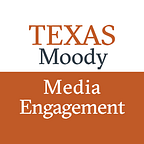Why ‘Dislike’ When You Can ‘Respect’
When Facebook makes a change, everyone has an opinion. That was definitely the case when Mark Zuckerberg announced that the social media giant would begin testing out a “Dislike” button.
The reasoning behind the decision, according to Zuckerberg, was that users have long requested a way to express negative emotions or empathy so that they could better interact with posts related to sad or tragic events.
“Not every moment is a good moment, and if you are sharing something that is sad, whether it’s something in current events, like the refugees crisis that touches you, or if a family member passed away, then it may not feel comfortable to like that post,” Zuckerberg said, as printed in the New York Times. “So I do think it’s important to give people more options than just like.”
We at the Engaging News Project agree that there should be alternative ways of engaging with content on Facebook and other social platforms. Adding a dislike button gives people a new way to interact — and an appropriate button for many situations where “Like” just doesn’t seem appropriate.
But “Dislike” brings baggage of its own. At the Engaging News Project, we’ve done research showing that the types of buttons available affect how people react. These word choices — although seemingly innocent — have social consequences. And while “Dislike” may be a useful button when interacting with a tragic event, it takes on new meaning when thinking about partisan political content.
One of the goals of the Engaging News Project is to think of ways to reduce political polarization in this country — a nearly impossible goal that is arguably made more difficult when one of the largest sites on the Internet only allows users to “Like,” or now possibly “Dislike,” content.
But what if we had a button that allowed users to acknowledge a valid point, even if it didn’t align with their political beliefs?
Why “Dislike” something when you could “Respect” it?
We did a study that analyzed how different social media buttons affected how people responded to comments. We wanted to know whether some buttons — and the concepts they convey — allow commenters to express their appreciation for postings expressing an opposing political opinion more than others.
In our study, we analyzed how people reacted to a comment section depending on whether they were able to “Like,” “Recommend,” or “Respect” other people’s comments. Study participants saw exactly the same comment section, but we alternated which of the buttons they could use.
We found that, in several instances, people were more likely to click on comments expressing another political view when they had a “Respect” button to use, compared to having a “Like” button available.
We believe that a simple word change, such as using “Respect,” makes a difference. It allows people to think beyond whether they “Like” something, and analyze whether they “Respect” another user’s opinion.
With the 2016 election just around the corner, and with Facebook getting more and more involved in news and politics, we think it’s time for Facebook to start looking beyond just “Like” and “Dislike.” We think it’s time that we all begin to “Respect” each other a little more.
